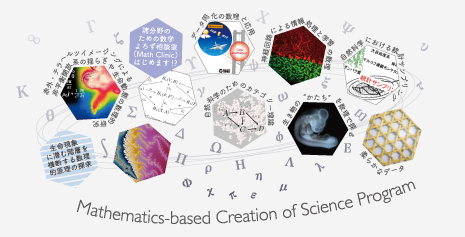
Fundamental science expands human knowledge and understanding of nature. It also provides the intellectual foundation on which engineering and other applied disciplines develop in a concerted and systematic manner. As a result of revisiting its mission in natural science research and education, Kyoto University (KU) has established a new goal to "search for universal natural principles and create novel disciplines through interdisciplinary collaborations." Currently, researchers tend to place greater emphasis on practical applications, with declining interest in fundamental science. Moreover, scientific advancements have divided science into narrow specialty fields. These situations might suggest that future scientists will only devise near-sighted, patchy solutions to many complicated challenges. The creation of new scientific disciplines that assist natural scientists in addressing global human challenges from a broad and flexible perspective is therefore urgent.
The MACS program takes advantage of the wide applicability of mathematical science and uses it as the basis for integrating other disciplines. This program aims to explore uncharted areas by creating multidisciplinary study groups with different themes and approaches. Students will be encouraged to step into unknown fields of research that cannot be discovered by conventional methodologies. The MACS program aims to generate a new generation of world-leading natural scientists who will chart the new frontiers of science.
The MACS program has two major features:
- The descriptive applicability of mathematical science is exploited to develop new areas of natural science. This flexible, individually focused program is the first of its kind in Japan.
- This program aims to overcome compartmentalized divisions of science and develop a holistic approach to science. It will equip students with deep scientific understanding and a broad perspective.



